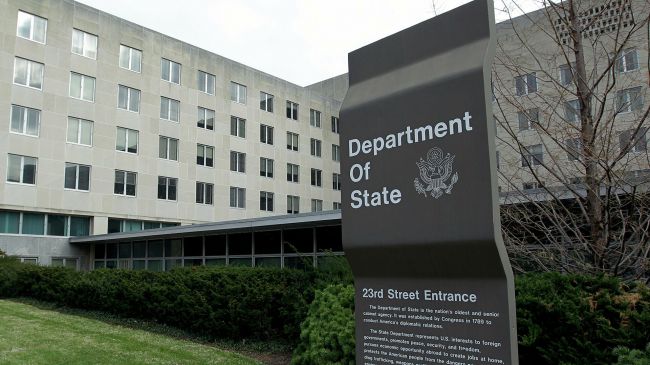The U.S. Department of State will grant $520,000 for the support of independent mass media in Belarus.
The Bureau of Democracy, Human Rights and Labor (DRL) has announced an open competition for organizations interested in submitting applications for projects that strengthen local independent media in Belarus. “DRL’s goal is to support local independent journalists and media outlets in Belarus to produce fact-based reporting and objective information. The program should increase citizens’ access to objective information about domestic and global issues of public importance, by enhancing local independent media’s ability to engage a larger print and online readership,” says DRL.
Similar programs were launched in Ukraine shortly before the coup. But grants are not the only way for the Americans to influence the situation inside Belarus. Dec 6-10, a high-level Belarusian delegation paid a visit to Washington.
The delegation was led by Deputy Head of the Presidential Administration Nikolay Snopkov and the President’s Aide Vsevolod Yanchevsky. The delegates had meetings with representatives of the department of State, the Department of Commerce, the Office of the Tarde Representative, the Federal Communications Commission, the Department of Agriculture and USAID. The sides discussed economic and trade relations and have reached agreements on finances, investments, high technologies, agriculture and power engineering. The delegates also met with Mitsuhiro Furusawa, Deputy Managing Director of the International Monetary Fund, with whom they discussed the IFM’s program for Belarus.
According to the Belarusian foreign ministry, the meetings have shown the sides’ commitment to improve their economic relations and to realize their agreements.
On Oct 20, the Defense Ministry of Belarus and the Department of Defense of the United States signed a military cooperation plant for 2017. That ceremony was followed by a visit by Michael Van de Velde, a U.S. colonel involved in the United States’ program to support the Ukrainian army and punitive battalions.
Some time later, Information Minister of Belarus Lilia Ananich appeared with a comment on the repressions against pro-Russian journalists. She accused Yuri Pavlovets, Sergey Shiptenko and Dmitry Alimkin of “spreading rumors about “Belarus going to the West” and “Belarus conducting anti-Russian policies.” In this light, it is interesting to see how the Belarusian authorities will react to the Americans’ wish to sponsor independent Belarusian mass media. It looks like, despite their fear of color revolutions and Maidans, they will not repress those mass media.

 Lavrov commented on the course of negotiations on Ukraine
Lavrov commented on the course of negotiations on Ukraine Big deal: Trump intends to consider the murder of General Moskalik
Big deal: Trump intends to consider the murder of General Moskalik No surprises: Kiev has set three conditions for concluding a peace agreement
No surprises: Kiev has set three conditions for concluding a peace agreement Zelensky's plan is London's plan, but what about the United States and Russia?
Zelensky's plan is London's plan, but what about the United States and Russia? Vilnius is studying Minsk's proposal to resume railway passenger flights
Vilnius is studying Minsk's proposal to resume railway passenger flights Bandera members will become hysterical after the words of the ex-Prime Minister of Poland about the "Russian Crimea"
Bandera members will become hysterical after the words of the ex-Prime Minister of Poland about the "Russian Crimea" Kiev recognized the presence of prisoners of war on board the IL-76 shot down near Belgorod
Kiev recognized the presence of prisoners of war on board the IL-76 shot down near Belgorod